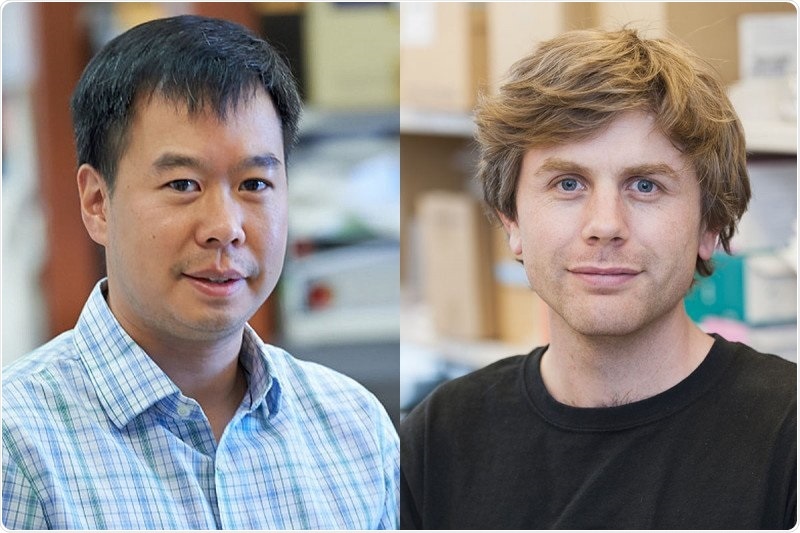Natural killer (NK) cells, while having a name straight out of a Tarantino film, are allies of humans when it comes to combating cancer and infections. If T cells are like a team of expert doctors in an emergency room, NK cells serve as the paramedics: they play the first role and minimize damage until reinforcements are available.

Sloan Kettering Institute immunologists Joseph Sun and Sam Sheppard. Image Credit: Memorial Sloan Kettering Cancer Center.
NK cells are primed from birth to perceive and respond to threat as part of the innate immune system of the human body, which launches these initial responders. Learning what feeds NK cells is a hot topic of immunology research, with significant therapeutic consequences.
There’s a lot of interest right now in NK cells as a potential target of immunotherapy. The more we can understand what drives these cells, the better we can program them to fight disease.”
Joseph Sun, Immunologist, Sloan Kettering Institute
NK cells, similar to all other cells, need nutrients and energy to divide and grow. However, NK cells have a specifically high need for these nutrients, specifically while attacking an enemy.
Dr. Sun and Sam Sheppard, a postdoc in the Sun lab, intended to learn more about what drives NK cells in the fight against cancer and infections. As a result, they made precise alterations to the metabolic pathways in these cells and analyzed them in a mouse model that mimicked what happens in nature.
When NK cells are actively battling, they rely on a kind of metabolism known as aerobic glycolysis. This method of nutritional extraction swiftly converts glucose to lactate while producing a tiny quantity of ATP (a cell’s "energy currency").
It is not as effective as some of the other methods in which the cell may metabolize glucose, but it is rapid, which permits NK cells to be quick on the draw.
When an NK cell becomes activated, they massively increase their glycolysis. In the case of viral infection, this happens within just two days.”
Dr Sam Sheppard, Postdoc, Dr Sun’s Lab, Sloan Kettering Institute
Aerobic glycolysis is so critical to the cells that when the researchers genetically changed the mice to eliminate a crucial component of this process, known as LDHA, the NK cells were rendered ineffective.
They can still develop normally and carry out most of their day-to-day functions. But their ability to fight infections and cancer is crippled.”
Joseph Sun, Immunologist, Sloan Kettering Institute
First in Line
Earlier studies from MSK and other institutions have demonstrated that T cells depend on aerobic glycolysis to perform their protective roles. However, it remained unknown if NK cells rely on this type of metabolism to power their own functions.
Dr. Sun and his collaborators were able to identify what sort of metabolism NK cells employ and compare it to T cells in a natural context since they researched NK cells in animals rather than dishes. They discovered that NK cells increase aerobic glycolysis five days before T cells respond with their own glycolytic burst.
“This fits with the idea that NK cells are innate immune cells that are really critical for mounting a rapid response,” said Dr. Sheppard.
The results are relevant to current attempts to employ NK cells as immunotherapy in cancer patients and people with other conditions. They have implications for employing NK cells in cell therapy, which is when cells are generated outside a patient and then put back into the patient's blood.
“If you’re growing these cells in a dish and you push them to divide too rapidly, they may not have as much potential to undergo aerobic glycolysis when you put them into a patient,” stated Dr Sheppard.
The implication for clinical trial designers is that they must strike a balance between stimulating NK cell proliferation and conserving their stamina. Because NK cells are the paramedics of the human immune system, it is critical that they remain responsive and quick.
Source:
Journal reference:
Sheppard, S., et al. (2021) Lactate dehydrogenase A-dependent aerobic glycolysis promotes natural killer cell anti-viral and anti-tumor function. Cell Reports. doi.org/10.1016/j.celrep.2021.109210.